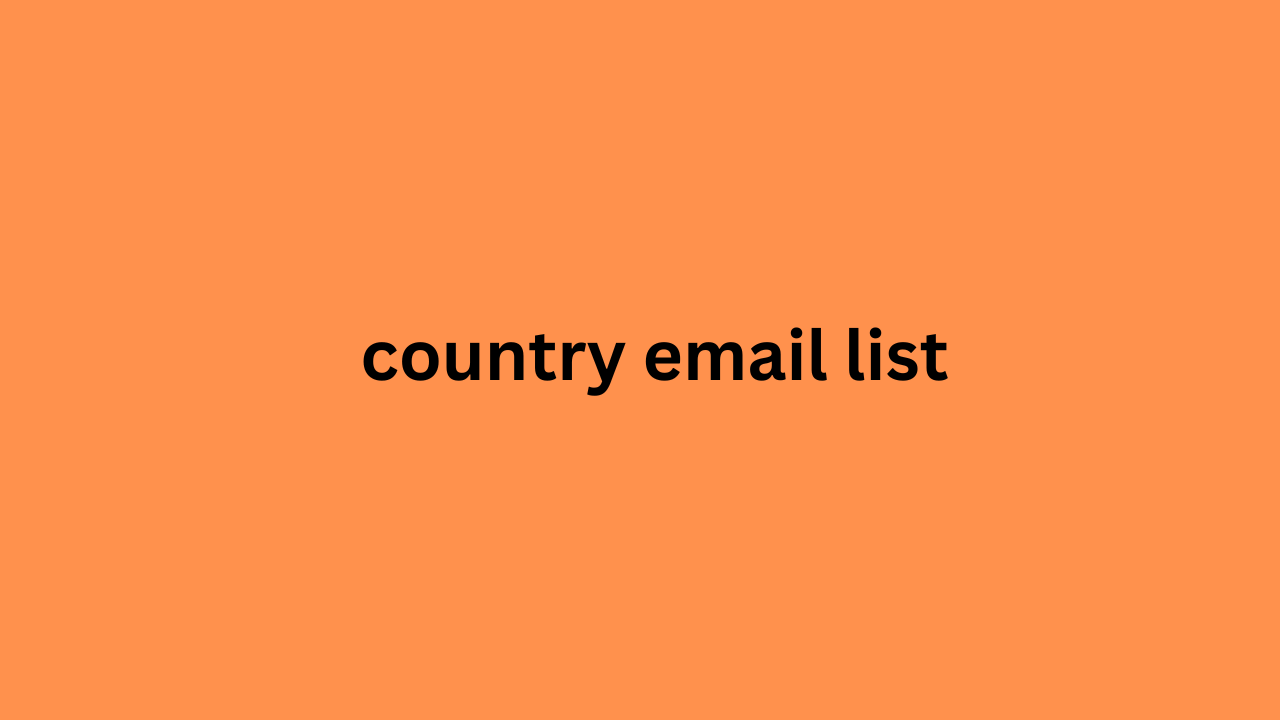Adapts to the specific needs of each company
Posted: Sun Dec 15, 2024 6:35 am
A CRM is highly customizable and adapts to the specific needs of each company. This means that regardless of the size or industry of the company, you can find a system that suits it.
A small business may opt for a simpler, more cost-effective solution that meets its basic customer management needs, such as keeping a centralized record of contacts and interactions with them.
A larger company with multiple departments and more complex processes may need a more robust and scalable solution that can integrate with other business systems and handle large volumes of customer data.
As you can see, businesses face many challenges in a highly competitive environment , from customer retention to effectively managing their operations.
Let's explore the benefits of using a CRM
If you are still not clear on the importance of implementing a CRM in your company, below I present the main benefits that you will obtain by implementing this system , from the centralization of information in real time, to constant improvement according to your specific needs.
Centralize all customer information in one place and update it in real time
This way, the work team has immediate and organized access to all relevant customer information , including:
The purchase history.
Previous interactions with the sales or customer service team, among others.
This facilitates the decision-making process and improves efficiency in customer management.
Let's look at the following case : Company ABC has country email list its marketing, sales and customer service teams, each working independently.

This way of working means that customer information is located in different places and formats, making it difficult to access and understand.
Furthermore, it is inaccurate or outdated, leading to errors in decision-making and customer management.
With a CRM, the different teams in the company work collaboratively and in a coordinated manner.
Provides a more complete and detailed view of the business
With this, the company analyzes customer information to obtain valuable insights for strategic decision-making. This includes better understanding:
Customer behavior.
Your preferences and needs.
Business opportunities and areas for improvement in customer service processes.
Helps to offer better service and personalized attention
A CRM allows the company to better understand the needs and preferences of its customers . This is achieved by tracking customer interactions with the company, such as:
Shopping.
Customer service inquiries.
Website visits.
Social media interactions and other behavioral data.
This is crucial information for offering personalized promotions or incentives. Some examples of how this can be applied are:
A restaurant gathers information about a customer's preferences and then emails them discounts or promotions on dishes it knows they like.
A service company collects information about a customer's purchase history to provide incentives for future purchases, such as discounts on contract renewals.
A hotel gathers information about customer preferences for room amenities, such as pillow choice or room temperature, and then offers personalized promotions or incentives for future reservations.
A small business may opt for a simpler, more cost-effective solution that meets its basic customer management needs, such as keeping a centralized record of contacts and interactions with them.
A larger company with multiple departments and more complex processes may need a more robust and scalable solution that can integrate with other business systems and handle large volumes of customer data.
As you can see, businesses face many challenges in a highly competitive environment , from customer retention to effectively managing their operations.
Let's explore the benefits of using a CRM
If you are still not clear on the importance of implementing a CRM in your company, below I present the main benefits that you will obtain by implementing this system , from the centralization of information in real time, to constant improvement according to your specific needs.
Centralize all customer information in one place and update it in real time
This way, the work team has immediate and organized access to all relevant customer information , including:
The purchase history.
Previous interactions with the sales or customer service team, among others.
This facilitates the decision-making process and improves efficiency in customer management.
Let's look at the following case : Company ABC has country email list its marketing, sales and customer service teams, each working independently.

This way of working means that customer information is located in different places and formats, making it difficult to access and understand.
Furthermore, it is inaccurate or outdated, leading to errors in decision-making and customer management.
With a CRM, the different teams in the company work collaboratively and in a coordinated manner.
Provides a more complete and detailed view of the business
With this, the company analyzes customer information to obtain valuable insights for strategic decision-making. This includes better understanding:
Customer behavior.
Your preferences and needs.
Business opportunities and areas for improvement in customer service processes.
Helps to offer better service and personalized attention
A CRM allows the company to better understand the needs and preferences of its customers . This is achieved by tracking customer interactions with the company, such as:
Shopping.
Customer service inquiries.
Website visits.
Social media interactions and other behavioral data.
This is crucial information for offering personalized promotions or incentives. Some examples of how this can be applied are:
A restaurant gathers information about a customer's preferences and then emails them discounts or promotions on dishes it knows they like.
A service company collects information about a customer's purchase history to provide incentives for future purchases, such as discounts on contract renewals.
A hotel gathers information about customer preferences for room amenities, such as pillow choice or room temperature, and then offers personalized promotions or incentives for future reservations.